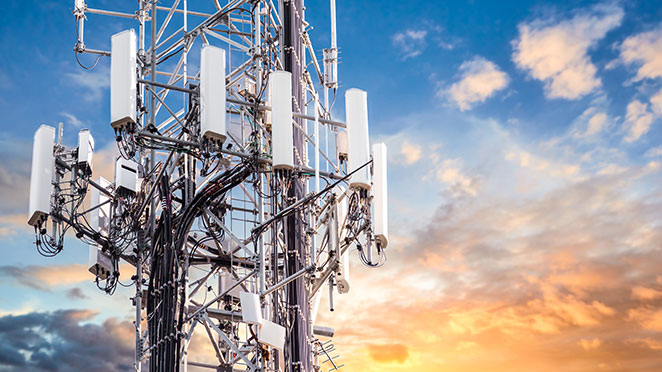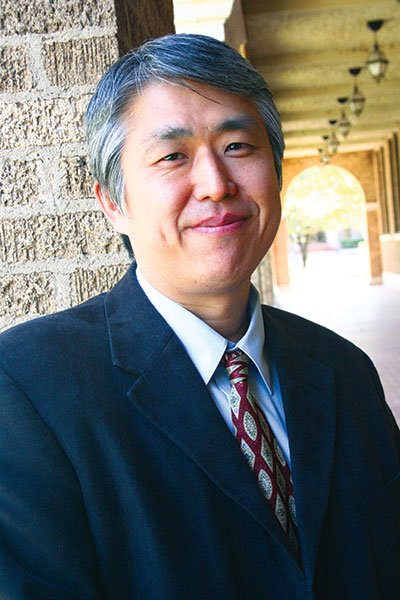Texas Tech Engineering Researcher Delves Into 5G Communications
By: Karen Michael

If you try to download a movie with your phone now, it probably takes around six minutes. Within three to 10 years, you will be able to download that entire movie in just 3.6 seconds.
"That is just so fast!" said Donald Lie, the Keh-Shew Lu Regents Chair in the Department of Electrical and Computer Engineering. "That's what we're trying to do, to enable the download speed of 10 to 100 gigabits per second. You know, right now you probably don't get 100 megabits per second download with your cell phone. This is something that the entire world has been really working on."
Last year, Lie was awarded a couple of grants of $532,758.00 for his work related to 5G communications.

Lie and his students are researching 5G, a technology that has created a lot of buzz. The three main missions of 5G are really high communication speeds; massive machine time connections for connecting more things to the internet such as refrigerators, vehicle connections in all cars, and virtual reality games; and ultra-reliable machine time communication, such as that which would be required for surgical operations or precision manufacturing by robots.
The 5G that is being advertised at the moment, Lie said, is the use of many antennas transmitting at a frequency of less than 6 gigahertz to increase download speeds. But true 5G speed is actually transmitted on a higher frequency band of 24 to 50 gigahertz. That is still three to five years away, he said.
Not only would this technology be faster than the smart phone currently in your back pocket, but it would likely be a lot faster than whatever you are using for your home or business internet connection.
Two of the critical issues for 5G electronic devices are power (heat) and health concerns.
"Right now, the most critical issue for setting up a base station that is a tower at higher 5G frequency is that it just burns too much power," Lie said.
That means a big heat sink is necessary, and the amount of power needed will also demand more battery power from devices like phones.
"Right now, I'm trying to develop cost-effective, but really, power-efficient amplifier and transmitter designs. That's what my group is doing. That's what my IEEE Fellowship was known for: high efficiency, radio frequency, wideband power amplifier design," Lie said.
But Lie acknowledged that some people are less excited about 5G than others. In some countries, protesters have spoken out about possible health hazards of 5G.
Lie said 5G home base stations could be located throughout homes in the future.
"The base station is going to be very close to you," Lie said, adding that they could be on a lamp stand in each room, even. "What is that going to do to you? That is something that, in terms of honest opinion, we need to investigate more. Usually the higher frequencies, they will not do too much to human tissues, but this is one of the areas I would be really happy to do the research on."
A lot more study is needed, he said, but the initial 5G tidal wave is forming.
Discoveries
-
Address
Texas Tech University, 2500 Broadway, Box 41075 Lubbock, TX 79409 -
Phone
806.742.3905 -
Email
vpr.communications@ttu.edu
